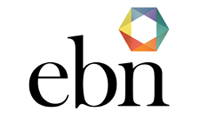
Recently I have been having some problems with my bank Click here After approximately 5 weeks and having no access to my business bank account, the challenges caused by the bank, and their apparent inability to deal with the technical issues of their making, it was starting to undermine my business. I started to check my account every day and, finding I still couldn’t access my account, I’d email my ‘Relationship manager’ each day asking for an update. Finally, I was told “it might take a few more days”, which was well outside the 72 hours I had been promised. I went into my local branch—which was naughty of me because my ‘Relationship manager’ made it clear that he had to manage any interaction with the bank.
At the local branch I once again told a member of staff my woes…and guess what, she said “We will deal with this”. Hurrah! Someone who was prepared to take responsibility for dealing with the problem they had caused. I became a customer and not an inconvenience and it was great. I had to go to a meeting, and I was asked if I could call in on my way back and, of course I said yes. Two hours late I returned, I was sat in front of the computer, a magic wand was waved and I again had a fully functioning online bank account. All it took was for someone who saw me as a customer, who accepted they had caused the problem, and who wanted to help. All it took was someone to take responsibility.
I have always said that you judge any business, not by what they do when things are going well but what do they do when it goes wrong. In this instance 8 people failed to take responsibility and there was no access to senior management. Also, customer-facing staff were unaware of known technical problems.
This made me think, what happens in my business? I have no staff—all my Group Directors have their own businesses and work with me not for me. So, I make the decisions. However sometimes I have holidays, so what happens then? Well, there are very rare occasions when something that needs dealing with immediately and cannot wait till I get back. On these occasions GDs may chat to other GDs, and a decision is made, a solution found and I always support that decision. Then I look at the problem and see what needs to be reviewed to ensure that problem doesn’t happen again.
Thank you for reading, here is my gift to you: my Top 20 networking tips just follow this link: ebn.uk.com and complete the form to receive your copy.
Have fun,
Glenys











Recent Comments